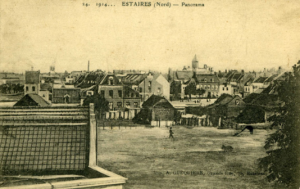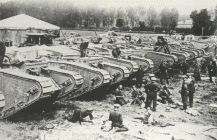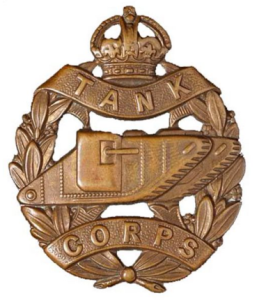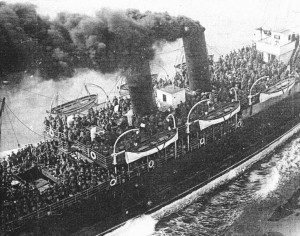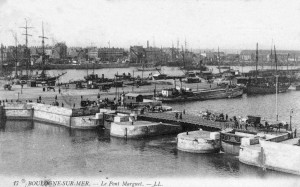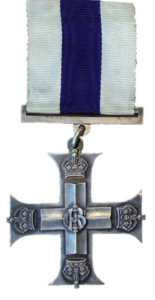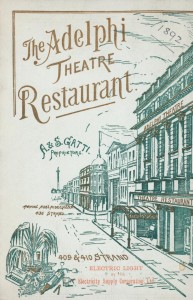Monthly Archives: January 2018
31st January 1918 Thursday
Dazed and Distended and a Pretty Girl!
All material produced or reproduced here and throughout this work is the sole copyright of the author and the family of Doctor D.C.M. Page MC.
The lady and gentleman in whose house I was billeted gave the Colonel and I a lunch one day. It was a great feast consisting of oysters, fish, beef and vegetables, sweets and coffee. We also had countless wines thrust upon us, beginning with Sauterne, and following on with Burgundy, Bordeaux, Beer, Champagne, Liqueurs and Gin! I felt rather dazed and distended after it all. Some music followed, and then tea was served! I left about 5.30 p.m. after about five hours of continuous feasting! The three daughters of our host and hostess were present also. One was rather pretty.
On the 31st January I was sent to the 17th Royal Welsh Fusiliers to act as their medical officer, whilst their regular man was on leave. The Battalion was stationed in Estaires, so that I was quite close to the Ambulance.”
It was like home from home and a life that he had become very used to away from the comforts of life in Edinburgh. Life on the Western Front was never going to be a holiday, but men will make the best of any situation. Nevertheless life could sometimes have seemed a little bizarre. One moment you were dodging a shrapnel shell or shaking with fear under attack by gas or being bombed from above. Next thing, for those lucky enough, you could be being wined and dined in the parlour of a sympathetic host with some attractive daughters to distract your attention.
Find out about our connection with Dr Page and an introduction to his diary here
18th January 1918 Friday
A long day back to duty.
All material produced or reproduced here and throughout this work is the sole copyright of the author and the family of Doctor D.C.M. Page MC.
Douglas set out on the laborious journey back to the French Western Front to meet up once more with the 130th (St.John) Field Ambulance in Estaires, much to his personal satisfaction.
Tanks had begun to gather just outside St. Pol which became an important point in the deployment of tanks and was the scene for a later policy of deceiving the Germans into thinking the Tank Division was larger than it really was.
After putting up a good show during the preliminary battles leading up to the Passchendaele offensive, particularly at Pilkem Ridge, the 38th Division had gone a long way to restoring its reputation among the army hierarchy. Suffering enormous losses at the Somme with the fight for Mametz Wood, Haig put it down very unfairly to lack of endeavour. The 38th were withdrawn from the main offensive in September 1917, being used to take up new positions in the area around Armentieres. Then given time to rest and train before taking up fighting positions once more in February 1918.
Find out about our connection with Dr Page and an introduction to his diary here
17th January 1918 Thursday
Douglas’s consoling second breakfast indicates that he may have caught the Pullman again. No such luxuries a hundred years on, he may have been lucky to find a refreshment trolley serving a sandwich and something masquerading as a cup of coffee. Of course even boat trains to the now defunct Folkestone Harbour are a thing consigned to history, superseded by the Channel Tunnel.
Find out about our connection with Dr Page and an introduction to his diary here
16th January 1918 Wednesday
The King honours Douglas but Mother is left out in the cold
All material produced or reproduced here and throughout this work is the sole copyright of the author and the family of Doctor D.C.M. Page MC.
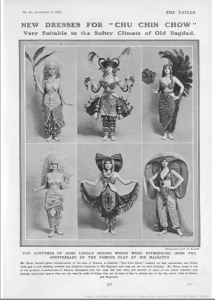
The Tatler – Wednesday 12 September 1917
Image © Illustrated London News Group. Image created courtesy of THE BRITISH LIBRARY BOARD. https://www.britishnewspaperarchive.co.uk/
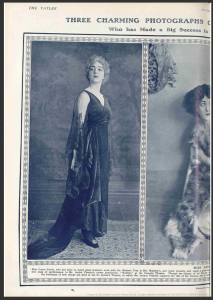
The Tatler – Wednesday 23 May 1917 Image © Illustrated London News Group. Image created courtesy of THE BRITISH LIBRARY BOARD. https://www.britishnewspaperarchive.co.uk/
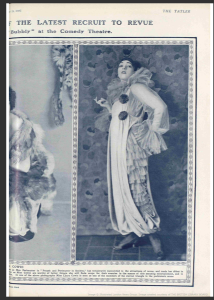
The Tatler – Wednesday 23 May 1917 Image © Illustrated London News Group. Image created courtesy of THE BRITISH LIBRARY BOARD. https://www.britishnewspaperarchive.co.uk/
Finally the day of Douglas’ great honour had arrived and his mother Elizabeth and himself proudly set off in a taxi for Buckingham Palace sadly for his mother to be denied access by the protocol of the day.
Nonetheless I am absolutely sure that she would have been glowing with pride that her son had got to meet the King and be honoured in such a way.
Following lunch at Morley’s and the show in the Haymarket he doesn’t mention what happened to his mother following that but one would assume that as he was again out to dine with a colleague in the evening that she had been suitably despatched back to Kings Cross and home to Scotland.
Douglas mentions that ‘Chu-Chin-Chow’ was a wonderful show but from reading about some of its content it may not appear an obvious one to take your mother to as the cast included scantily clad slave girls. However the Pages’ visit may have been after that of the Lord Chamberlain where the ‘naughtiness’ was ordered to be toned down. Chu-Chin-Chow along with the Bing Boys was one of the great successes of the War years. It ran for over 5 years with 2238 consecutive performances. This record was held for almost 40 years until it was overtaken by Salad Days in the 1950s.
Find out about our connection with Dr Page and an introduction to his diary here
14th January 1918 Monday
Time off for Douglas in Perth, Edinburgh and London
All material produced or reproduced here and throughout this work is the sole copyright of the author and the family of Doctor D.C.M. Page MC.
“Everybody was in great form at home, and the time soon sped by with visits to friends, theatres, etc., and a flying visit to Perth where I attended a concert and dance at the War Hospital.
Great crowds were to be seen daily at the Mound, where ‘Julian’, the Tank, was collecting money for the War. Army bands played all day, and great men (such as A.J. Balfour) spoke at intervals from the top of the Tank. Aeroplanes flew overhead, and everybody got very excited.
Mother and I left Edinburgh for London at 10 a.m. on the 14th January, 1918. It was a long and crowded train drawn by three engines. We put up at Morley’s Hotel, in Trafalgar Square. Next day Mother and I lunched at Gatti’s, and then saw the pantomime, ‘Aladdin’ at Drury Lane – an excellent show, with Stanley Lupino, and Robert Hale in the cast.
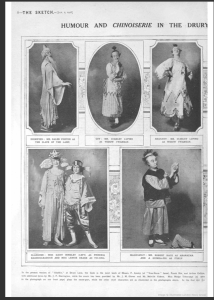
The Sketch – Wednesday 02 January 1918 Image © Illustrated London News Group. Via the British Newspaper Archive.
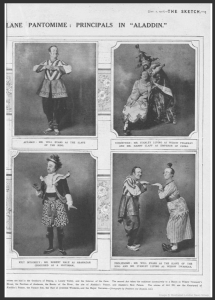
The Sketch – Wednesday 02 January 1918 Image © Illustrated London News Group. Via the British Newspaper Archive.
At night I dined with Col. Campbell at the Savoy Hotel. He was in great form, and gave me a wonderful dinner. Afterwards he took me to see a revue “Cheep”, which was very good.”
If you have been following our diary you will remember that on 16th December 1916 Douglas was summoned for duty at Perth Military Hospital and he stayed there until 8th February 1917 when he was sorry to leave.
Julian the Tank was one of 6 Mk iv male tanks despatched to towns and cities throughout the UK in an attempt to raise funds through donations and the purchase of War Bonds. This was against the backdrop of the introduction (apart from the abortive attempt by Haig at the Somme in 1916) of Tanks at Cambrai, only a few weeks previously to great effect.
It was a massively successful exercise and raised enormous sums of money in a very short time. Former Prime Minister and current Foreign Secretary Arthur Balfour and others stood on top of the tank and gave impassioned speeches. During the week on display at the Mound in Edinburgh £4,764,639 was raised. Glasgow raised over £14 million! In today’s money the amount raised in Edinburgh is approximately £380 million. Julian the Tank was named after General Julian Byng.
Douglas had previously dined at Gatti’s in September 1917.
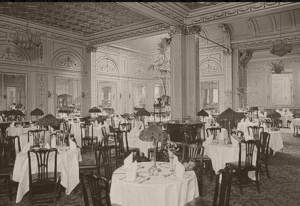
Pictures kindly supplied by Chris Penna of Gatti House.
“Cheep” had opened at the Vaudeville Theatre on the Strand on 26 April 1917 and ran for 483 performances. As the Vaudeville is just across the road from the Savoy Hotel we are assuming that it was still at this theatre when Douglas saw it in January 1918 but if anyone knows different please let us know.
We hope to add more to this post soon once some computer issues have been sorted out.
